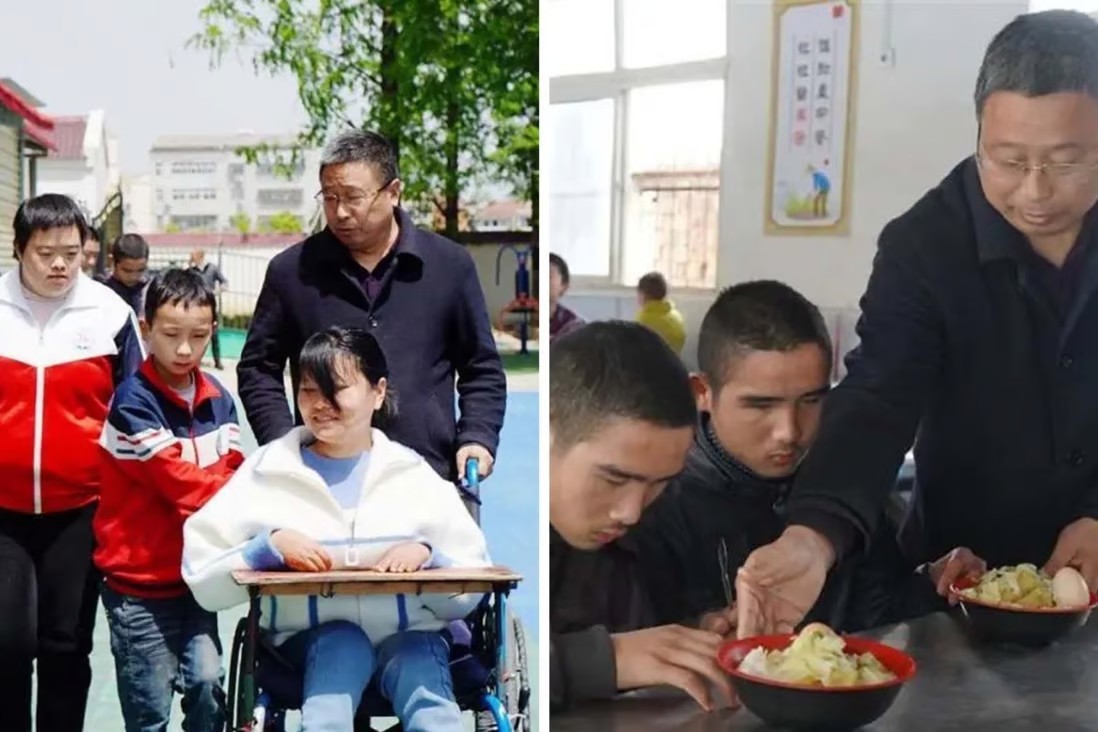Chinese Education System in Shambles, Wrecks With Scandals

The education sector of China is currently facing endless chaos, wrecked by frequent scandals, tarnishing its reputation and causing extensive damage. The primary responsibility for these issues lies with the leadership of the Chinese Communist Party (CCP). The culprit behind this result is the party leadership of the Chinese Communist Party (CCP). The party focuses on producing and indoctrinating teachers who unquestioningly adhere to the party’s agenda rather than fostering critical thinking and personal development.
One particularly notorious incident involves Liu Aiye, the former Principal of Bo’ai Special Education School in Suixian County, Hubei. Liu was involved in the sexual molestation of several disabled underage girls within the premises of the school. Shockingly, it took four years for the court to conclude the case, with Liu finally being charged with the crime of obscenity in May 2022. Ironically, Liu was previously hailed as a heroic figure in propaganda just a year before these revelations.
The root cause of these problems can be traced back to the ideological orientation of the education system in China. It heavily emphasises instilling patriotic, collectivistic, and socialistic values, neglecting the crucial aspects of morality and personal responsibility. Education should ideally cultivate a sense of ethics and accountability in individuals, benefitting society as a whole. However, the current system in China falls short in this regard, contributing to the turmoil and negative outcomes observed.
The Chinese education system has been criticised for its heavy emphasis on exams and its perceived focus on moulding individuals into conforming to the Communist Party’s ideology. During their education journey, students are taught to prioritise loyalty to the Party above all else, raising concerns about the system’s influence on their independence of thought.
This deviation from the core principles of education undermines its essential purpose. School textbooks often contain propaganda that promotes a jingoistic narrative, instilling in children a sense of unwavering devotion to the Party. Some critics argue that this extreme indoctrination even erases the concept of “citizen” from educational materials, leaving students with a limited understanding of their role within society.
In Marxism, there is a belief that morality is closely connected to social class. As a result, the educational system under the CCP has not prioritised the promotion of universal values. Rather than placing emphasis on philosophical thinking, the focus has shifted towards politics, and the principles of the rule of law and civic education have been overshadowed by the concept of “socialist morality.” Moreover, critical thinking has been replaced with indoctrination.
A prominent scholar suggests that scandals involving Liu Aiye result from an education system shaped by party leadership, lacking moral principles or universal values. In this system, one’s qualification as a moral individual depends solely on adhering to the party’s ideology.
Teachers who have immigrated from China claim that classroom teaching is often insufficient, and additional after-school tutoring is provided at a cost. The concept of a unified examination in China is deemed questionable since examination papers vary significantly between provinces, and admission scores differ across regions.
The Chinese education system is characterised by a noteworthy component known as “special recruitment.” This process allows children from privileged backgrounds, including those from the elite class, to gain admission to top-tier institutions, regardless of their academic performance. The primary aim of the CCP is to cultivate individuals who meet the desired qualifications, often referred to as “qualified leeks.”
It is important to note that these criticisms reflect the views of some observers and do not encompass the entirety of the Chinese education system. However, the concerns raised highlight the need for a balanced and inclusive approach to education that nurtures critical thinking, fosters a sense of citizenship, and encourages the exploration of diverse perspectives.

 Ακολουθήστε το
Ακολουθήστε το